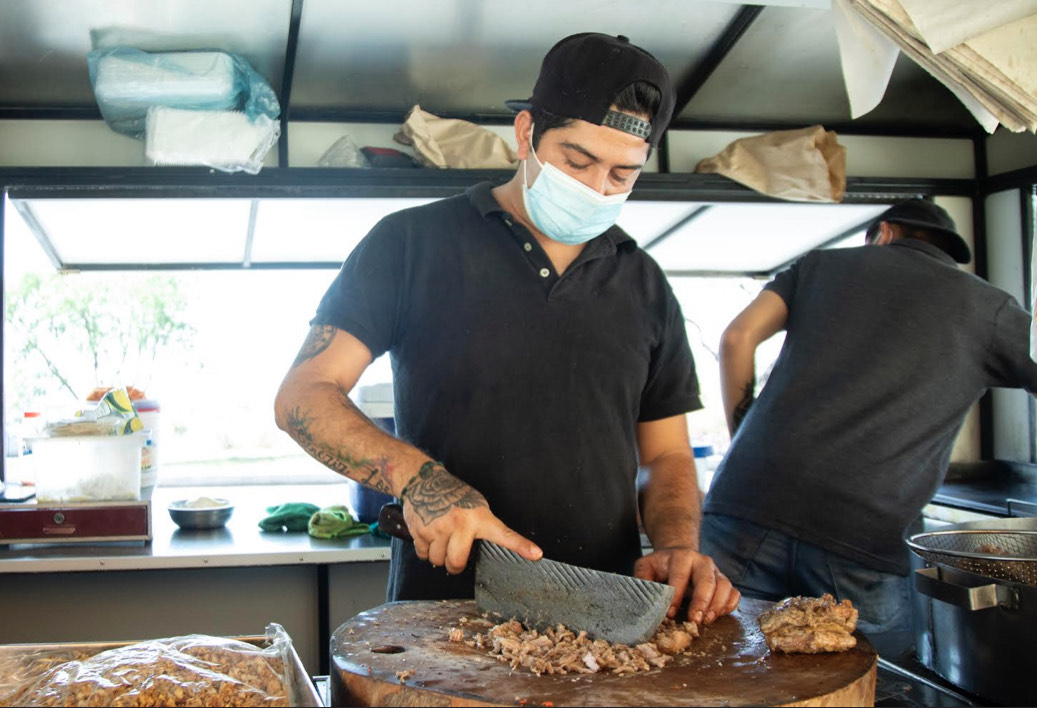Our Street Vendors Need You (As Much as You Need Tacos) — Here’s How To Help
Food vendors populate California streets almost as much as palm trees and electric cars.
Street food embodies the rich cultural diversity of our state and it’s an integral part of the California landscape, but at this moment our beloved fruteros, eloteros, and paleteros are at risk of being penalized by outdated state laws.
As a Latina girl, born and raised in Los Angeles, I grew up eating asada street tacos with refreshing aguas frescas, churros with cajeta, and bacon-wrapped hotdogs outside fútbol matches. Many of these vendors have seen me and my twin brother grow up over the past 17 years as an extended part of their family, so writing about this massive threat to their livelihoods feels especially personal for me.

Sidewalk food vending provides greater entrepreneurial opportunities for immigrants and low-income workers, especially women of color, who lost their jobs at disproportionate rates during the pandemic.
Even with 11 million unfilled jobs in our country today, they have struggled the most to be rehired, forcing them to start their own micro-businesses with no capital, many of them becoming street vendors.
Unfortunately, most sidewalk food vendors in Los Angeles have not been able to secure permits, no matter how much time and money they’ve spent trying to obtain them. They are tasked with mandates such as having a dishwasher, a three-basin sink, and exhaust ventilation. These requirements were made for large food trucks or caterers and fail to acknowledge the portable nature of street food.
The problem is not about street vendors unwillingly wanting to secure permits, but about our current laws setting them up to fail.

But there might be a solution, which is where California Senate Bill 972 comes into play.
This bill promises to resolve the permit requirements issue and modernize the law to support and protect these micro-business owners by reducing the cost of permits and making them more accessible for low-income vendors.
The bill would also provide reduced fees for registrations or any related legal services, making it much easier to run a successful business. SB 972 also pledges to support and decriminalize businesses with non-traditional structural conditions if they do not pose any health concerns. This law would allow a wider variety of street vendors to be supported, and not be marginalized for their equipment or lack thereof, and instead focus on the quality and safety of their product.
Supporters of this bill are urging Governor Newsom to sign SB 972 into law and show support to these entrepreneurs. To take action, visit: https://castreetvendors.org/take-action/.
In California, street vendors alone contribute millions of dollars annually to the economy, partly funding schools, hospitals, and parks that benefit all Americans, regardless of their background and social status.
That is why it is important to remember that when street vendors do well, our entire community benefits and thrives.




